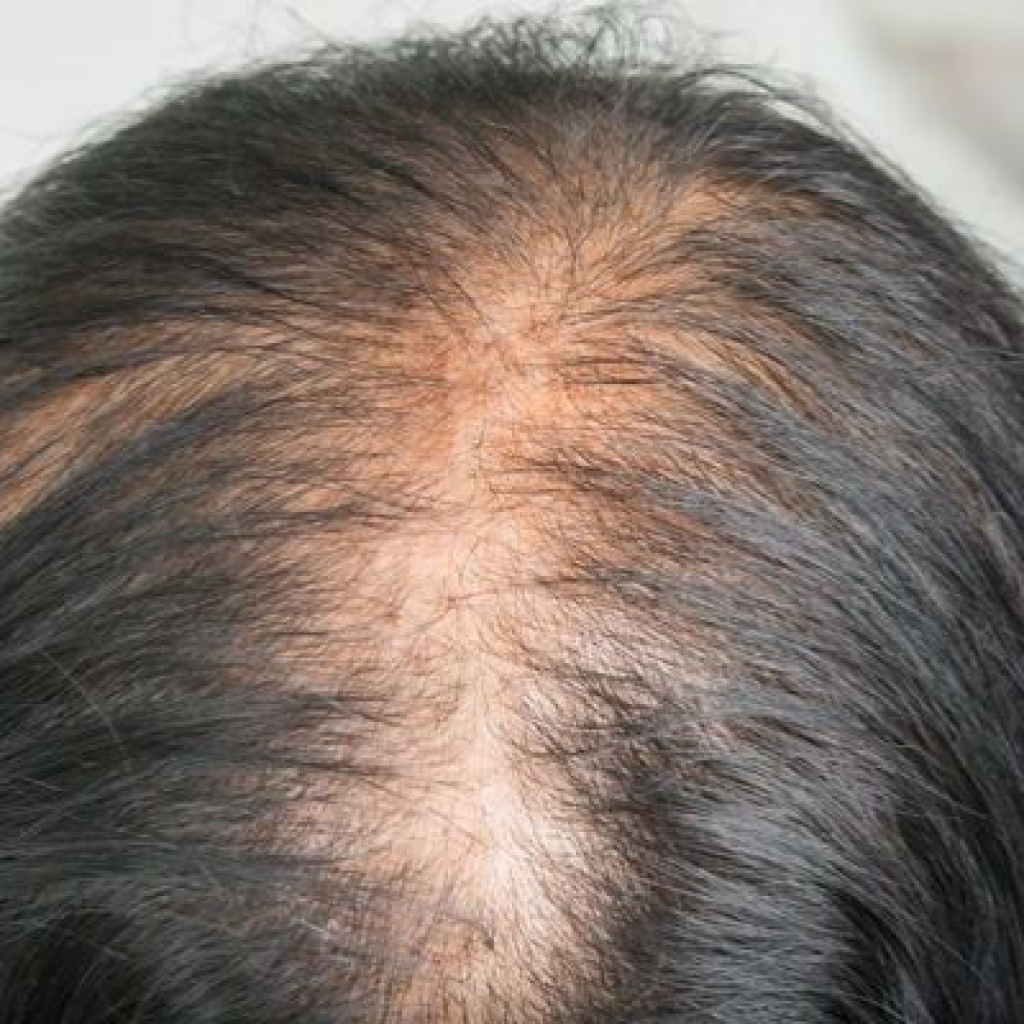Discover the connection between stress, lifestyle factors, and hair growth.
Can Stress and Lifestyle Factors Affect Hair Growth?
Stress and lifestyle factors are often blamed for a variety of health concerns, from weight gain to acne breakouts. But can they really affect something as important as hair growth? The answer may surprise you. In this article, we will delve into the fascinating world of hair growth and explore how stress and lifestyle choices can impact it. So buckle up and get ready for a hair-raising adventure!

Understanding the Basics of Hair Growth
Before we dive into the nitty-gritty of stress and lifestyle factors, let’s start by understanding how hair actually grows. It’s like a tiny garden on your head! The growth cycle of hair can be divided into three main stages: anagen, catagen, and telogen.
First up, we have the anagen phase, which is the active growth stage. During this phase, your hair follicles are in full bloom, producing new hair strands with enthusiasm. This stage can last anywhere from two to six years, depending on genetics and other factors.
Next, we have the catagen phase, also known as the transitional phase. This is when your hair takes a little break from growing and prepares to shed. It’s like a caterpillar getting ready to transform into a butterfly.
Finally, we have the telogen phase, more commonly known as the resting phase. This is when your hair follicles take a well-deserved vacation, and your hair strands decide to take a break from the hustle and bustle of growth. Eventually, the old hair strands are shed, and the cycle starts all over again.
But wait, there’s more to the story! Let’s take a closer look at each phase and unravel the intricate details of hair growth.
During the anagen phase, your hair follicles are working tirelessly to produce new hair strands. They are like dedicated gardeners, nourishing the roots and ensuring healthy growth. The rate of growth during this phase can vary from person to person, influenced by factors such as age, hormones, and overall health.
As the anagen phase comes to an end, the catagen phase takes over. This phase is like a brief intermission in the hair growth play. The hair follicles start to shrink and detach from the blood supply, signaling the end of active growth. It’s a transitional period where the hair prepares for its eventual departure.
Now, let’s talk about the telogen phase, the resting phase of the hair growth cycle. During this time, your hair follicles are taking a well-deserved break. It’s like a vacation for them, as they recharge and prepare for the next round of growth. While your hair strands may seem inactive during this phase, the follicles are still at work, getting ready to sprout new hair.
Factors That Influence Hair Growth
Now that we’ve covered the basic hair growth cycle, let’s explore some of the factors that can influence it. Genetics, for starters, play a significant role in determining your hair growth potential. If you come from a long line of luscious-locked individuals, consider yourself lucky!
But it’s not all about genetics. Various lifestyle factors can also make a difference. We’re talking about stress, diet, exercise, and even sleep. These factors can impact the overall health of your hair and affect its growth cycle.
Stress, for instance, can wreak havoc on your hair growth. When you’re under constant stress, your body releases hormones like cortisol, which can disrupt the hair growth cycle. Additionally, stress can lead to behaviors like hair pulling or excessive styling, which can further damage your hair strands.
Your diet also plays a crucial role in hair growth. Providing your body with the right nutrients, such as vitamins, minerals, and proteins, is essential for healthy hair. A balanced diet that includes foods like fruits, vegetables, whole grains, and lean proteins can promote optimal hair growth.
Exercise, surprisingly, can also impact your hair growth. Regular physical activity improves blood circulation, including to the scalp. This increased blood flow delivers essential nutrients and oxygen to the hair follicles, promoting their health and stimulating growth.
Lastly, sleep is an often overlooked factor in hair growth. Getting enough quality sleep allows your body to repair and rejuvenate, including your hair follicles. Lack of sleep can disrupt the hair growth cycle and lead to hair loss or slower growth.
So, let’s grab our magnifying glasses and investigate further! Understanding the intricacies of hair growth and the factors that influence it can help us take better care of our locks and enjoy healthy, vibrant hair.
The Impact of Stress on Hair Growth
We’ve all heard about the detrimental effects of stress on our overall well-being, but what about our precious locks? Is stress capable of wreaking havoc on our hair? The answer is a resounding “yes”! So, let’s take a closer look at the science behind stress-induced hair loss.
The Science Behind Stress and Hair Loss
When stress levels skyrocket, our body goes into survival mode. It releases a hormone called cortisol, which can interfere with the normal hair growth cycle. This can lead to hair follicles entering the telogen phase prematurely, causing shedding and thinning of the hair. Stress can also disrupt the balance of other hormones involved in hair growth, further contributing to hair loss.
Additionally, chronic stress can lead to inflammation in the scalp, which can hinder the proper nourishment of hair follicles. This inflammation can disrupt the flow of nutrients and oxygen to the hair roots, resulting in weakened hair strands and slower growth.
Furthermore, stress can cause individuals to engage in harmful habits that can negatively impact hair health. For instance, some people may resort to excessive hair pulling or twisting as a coping mechanism, leading to a condition known as trichotillomania. This compulsive behavior can cause significant damage to the hair follicles, leading to hair loss in localized areas.
But fear not! By managing stress levels and practicing self-care, we can minimize its impact on our lovely locks. Engaging in stress-reducing activities such as exercise, meditation, and spending time in nature can help regulate cortisol levels and promote a healthier hair growth cycle.
Real-life Examples of Stress-Induced Hair Problems
Now, let’s hear some real-life stories that showcase the relationship between stress and hair loss. Meet Jane, a hardworking executive who was juggling a demanding job and a hectic social life. One day, Jane noticed clumps of hair falling out in the shower, leaving her feeling devastated and self-conscious.
Or how about Tom, a student preparing for exams while dealing with relationship troubles? Tom’s once-thick mane started thinning, making him feel more stressed about his appearance.
These examples serve as a reminder that stress can manifest in various ways, including hair loss. But don’t fret! There are steps we can take to combat stress-induced hair problems.
One effective strategy is to prioritize self-care and relaxation techniques. Taking time to unwind and engage in activities that bring joy and relaxation can help reduce stress levels and promote healthier hair growth. Additionally, seeking support from friends, family, or even professional therapists can provide valuable guidance and coping mechanisms.
Furthermore, maintaining a balanced and nutritious diet can contribute to the health of our hair. Consuming foods rich in vitamins, minerals, and essential fatty acids, such as leafy greens, nuts, and fish, can support the growth and strength of our locks.
Lastly, adopting a consistent hair care routine that includes gentle cleansing, conditioning, and avoiding excessive heat or chemical treatments can help maintain the overall health and integrity of our hair.
Remember, while stress may have an impact on our hair, it doesn’t have to dictate our hair’s destiny. By prioritizing self-care, managing stress levels, and implementing healthy habits, we can nurture our locks and promote a vibrant and resilient mane.
Lifestyle Factors That Can Affect Hair Growth
It’s not just stress that can impact our hair growth. Our lifestyle choices, including our diet, exercise habits, and sleep patterns, can play a role as well. So, let’s dig deeper into these factors and how they can influence our lovely locks!
The Role of Diet in Hair Health
Ever heard the saying, “You are what you eat”? Well, when it comes to your hair, this saying holds some truth. A balanced diet rich in essential nutrients can provide the building blocks your hair needs to grow strong and healthy. So, load up on those fruits, vegetables, lean proteins, and healthy fats to give your hair the nourishment it craves!
How Exercise Influences Hair Growth
Exercise is not just beneficial for your waistline; it can also have a positive impact on your hair growth. When you exercise, your blood circulation improves, delivering oxygen and nutrients to your hair follicles. So, next time you hit the gym, remember that you’re also giving your hair a workout!
The Impact of Sleep on Hair Growth
Beauty sleep isn’t just a myth— it’s essential for healthy hair too! During sleep, your body repairs and regenerates itself, including your hair follicles. So, make sure to catch those ZZZs and wake up with fabulous hair!
Other Potential Influences on Hair Growth
Aside from stress and lifestyle factors, there are a couple of other influences that can affect hair growth. Let’s take a quick look at them.
Genetic Factors and Hair Growth
Your genes have a lot to say when it comes to your hair growth potential. If your parents and grandparents had abundant locks, chances are you will too! While genetics can’t be changed, understanding them can help manage your hair growth expectations.
Environmental Factors and Hair Health
External factors, such as the weather and pollution, can also impact your hair’s health. UV rays, harsh weather conditions, and pollutants can damage your hair follicles, leading to hair breakage and thinning. So, be mindful of your surroundings and protect your hair accordingly!
How to Promote Healthy Hair Growth
Now that we’ve explored the various factors that can influence hair growth, it’s time to discuss ways to promote healthy and luscious locks. Let’s dive right in!

Stress Management Techniques for Hair Health
To keep stress-induced hair problems at bay, it’s crucial to prioritize stress management techniques. This can include meditation, yoga, deep breathing exercises, or even indulging in your favorite hobbies. Find what works for you and make it a part of your self-care routine!
Lifestyle Changes for Better Hair Growth
In addition to managing stress, there are certain lifestyle changes you can make to optimize your hair growth potential. These include adopting a balanced diet, exercising regularly, getting enough sleep, and protecting your hair from environmental damage. Remember, healthy habits lead to healthy hair!
When to Seek Professional Help for Hair Loss
If despite your best efforts, you’re still experiencing excessive hair loss or slow hair growth, it might be time to seek professional help. A dermatologist or trichologist can assess your situation and provide tailored advice and treatment options to restore your hair’s glory.
Conclusion
In conclusion, stress and lifestyle factors can indeed affect hair growth. From the impact of stress hormones on the hair growth cycle to the role of diet, exercise, and sleep, it’s clear that our choices and habits play a significant role in the health of our tresses. Understanding these influences and taking proactive steps to promote hair health can lead to thicker, stronger, and more luscious locks. So, go forth and embrace your hair-raising adventure with confidence!





